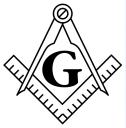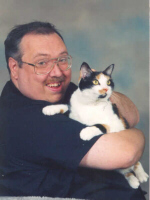November 2004
The month of November is a special time given by the Church to remember the witness of the saints and to pray for the dead. As believers, we set our sights on heaven, but acknowledge that many, maybe most of us, will have to pass through purgatory. It has been said that heaven is a sign of God’s generosity, giving us what we could never merit or deserve; hell is a sign of God’s justice, a testimony to the extent of God’s respect for human freedom, even when abused, and to the punishment due to sin; and purgatory is a sign of God’s mercy, offering healing to those with little faith and perfecting us in the fire of God’s love. Next to the Mass, the rosary is one of the most beneficial prayers for the poor souls in Purgatory. Following are brief meditations on the new Luminous Mysteries promulgated by Pope John Paul II.
Fraternally yours,
Father Joseph Jenkins
THE LUMINOUS MYSTERIES
Baptism of the Lord
John the Baptist washes Christ in waters made holy by the one baptized. The testimony of John is that Jesus is the long awaited Messiah and Savior. The voice of the Father announces that this is his beloved Son upon whom his favor rests. A dove descends upon Jesus and it will be by the power of the Holy Spirit that he will work his miracles and proclaim the truth. While Jesus’ baptism is revelatory, our baptism is transformative. Washed clean of sin, we are born again as members of the Church and made inheritors of the kingdom of heaven.
Wedding Feast at Cana
Mary’s role as a powerful intercessor is made abundantly clear when she calls upon her son, simply acknowledging that they have run out of wine at the banquet. Jesus’ first public sign and miracle is the changing of water into wine. At the end of his public ministry he will transform wine into his saving blood. Jesus prizes marriage so highly that the kingdom of heaven is compared to a marriage banquet between Christ and his bride, the Church. At a time when marriage is being challenged and compromised, our Lord stresses its importance in the divine plan for the joy of couples and for the sanctity of life.
Proclamation of the Kingdom of God
Jesus went from place to place, preaching the Gospel, feeding the multitudes, healing the sick, forgiving sins, and liberating people from bondage to the devil. We read in the Gospel of Mark, “The time is fulfilled, and the kingdom of God is at hand, repent, and believe in the gospel.” This work is now the mission of the Church. We pass on the faith to our children and share it with others. Our ministers teach the truths that Jesus gave us and the sacraments continue his ministry of reconciliation, healing and nourishment. The Church is the “breaking-in” of the kingdom into our world.
Transfiguration of Our Lord
Moses led his people out of Egyptian slavery. Jesus frees us from the bondage to sin. Elijah the prophet foretold of a Messiah and the restoration of God’s people. Jesus is the Savior who establishes a New Zion, the Church that participates in the glory of the heavenly Jerusalem. The transfiguration also gives us a glimpse of the coming resurrection. We can be transformed by grace and made brand new in the Lord. Faith in Jesus will always mean obedience as subjects of his kingdom. The voice from the cloud said, “This is my Son, my Chosen; listen to him!”
Institution of the Eucharist
Jesus, being God come down from heaven, had the power to save us. Jesus, being born into the human family, could offer his life as an oblation of propitiation for his brothers and sisters. The Mass gives us the Last Supper but also a re-presentation, although in an unbloody way, of the sacrifice of Calvary. Every ordained man participates in the one priesthood of Jesus Christ. The apostles at the Lord’s Supper were given all the benefits of baptism, confirmation, holy orders, and first Holy Communion. As pilgrims on our way to the kingdom, the Eucharist grants rations from that promised shore. Jesus feeds us with his own living body and blood—with himself—body, soul and divinity. We are not abandoned, not orphaned.


